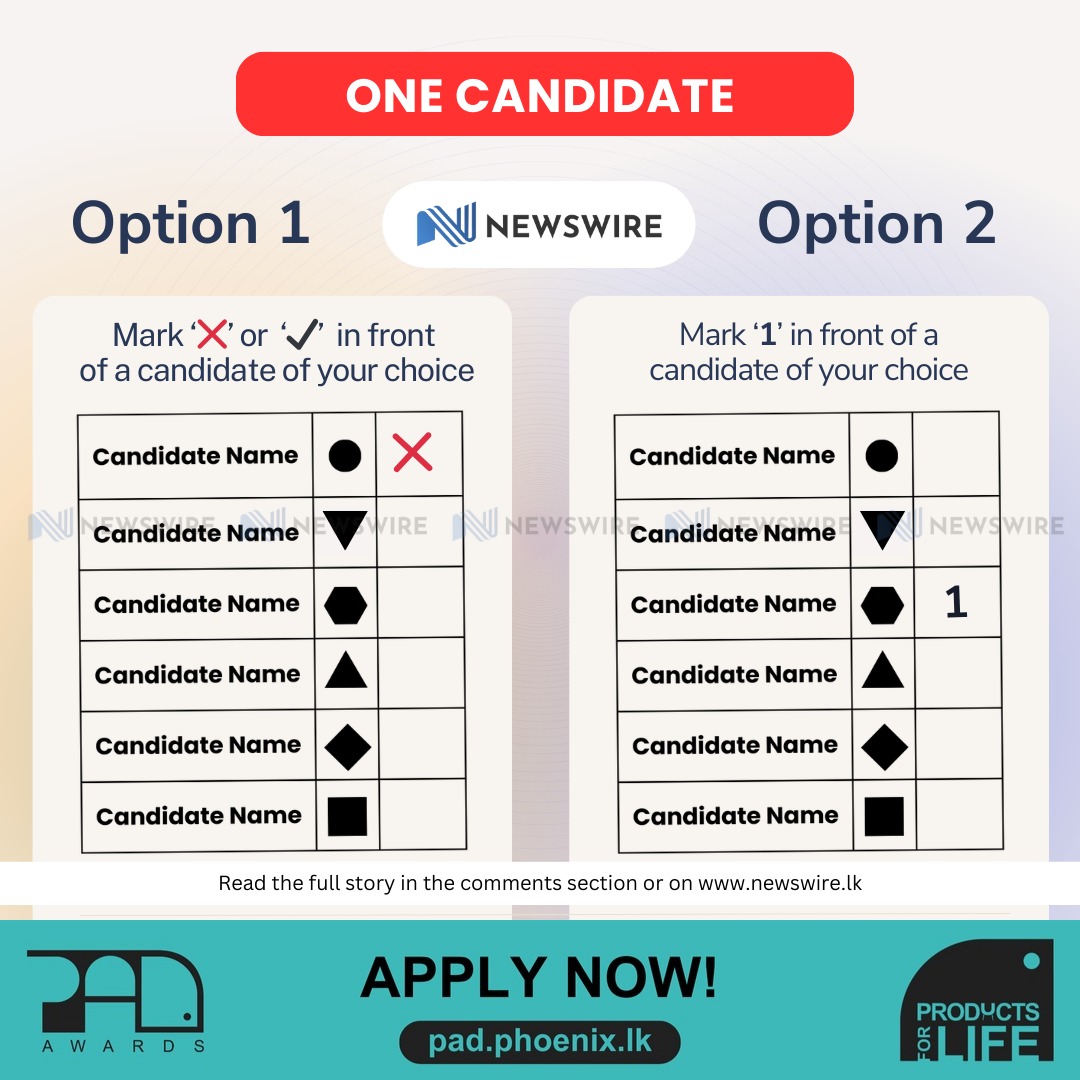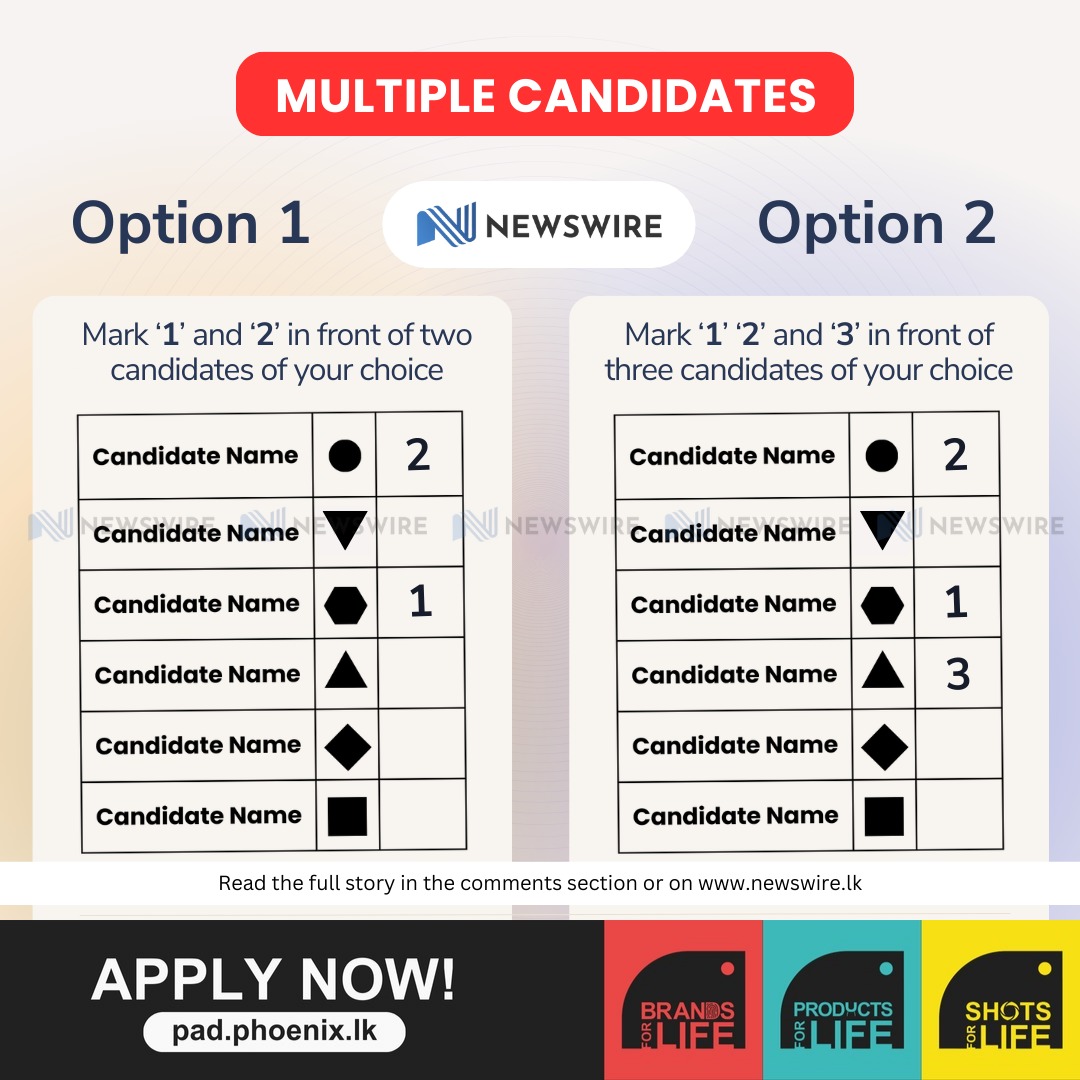
- HOW TO VOTE in Sri Lanka Presidential Election
It is mandatory that the voter should carry one of any identity documents i.e National Identity Card (NIC) or documents approved by the Election Commission such as the valid passport, valid driving license, senior citizens identity card, government pensioners’ identity card, identity card issued to clergy, temporary identity card issued by the Election Commission through Grama Niladhari.
It is advisable to carry the official poll card which will be convenient to the voter as well as the poll staff. So, carry it as well.
- The first officer examines the identity document and tallies the person’s face with the photograph in the identity document and if he is satisfied about identity, he directs the voter to the second officer.
- Second officer asks for the official poll card carried by the voter, finds out his/ her name in the electoral register and asks the name of the voter. Then the officer announces the name and the serial number of the voter loudly. If there is no objection, the officer directs the voter to the next officer.
- Third officer examines the little finger of the left hand of the elector and applies indelible ink round the little finger. If the voter refuses applying indelible ink he/she will not be able to cast a vote. After applying ink, the next officer will issue a ballot paper to the voter.
You have to go to the covered cubicle with the ballot paper and mark the vote to the candidate of your choice.
The voter should properly fold the ballot paper into two or if necessary into four and put it into the ballot box.
On voting:
- All voters have a right to cast their vote for the particular candidate of their choice as President. Voters may mark “X” or “1” against the name of their choice. If a voter marks “X”, no second or third preferences can be marked.
- All voters also have a right to cast their second and third preferences for two other candidates of their choice. If voters choose to mark second and/or third preferences. Second and/or third preference may be marked by marking “2” or “3” against the names of those other candidates.




